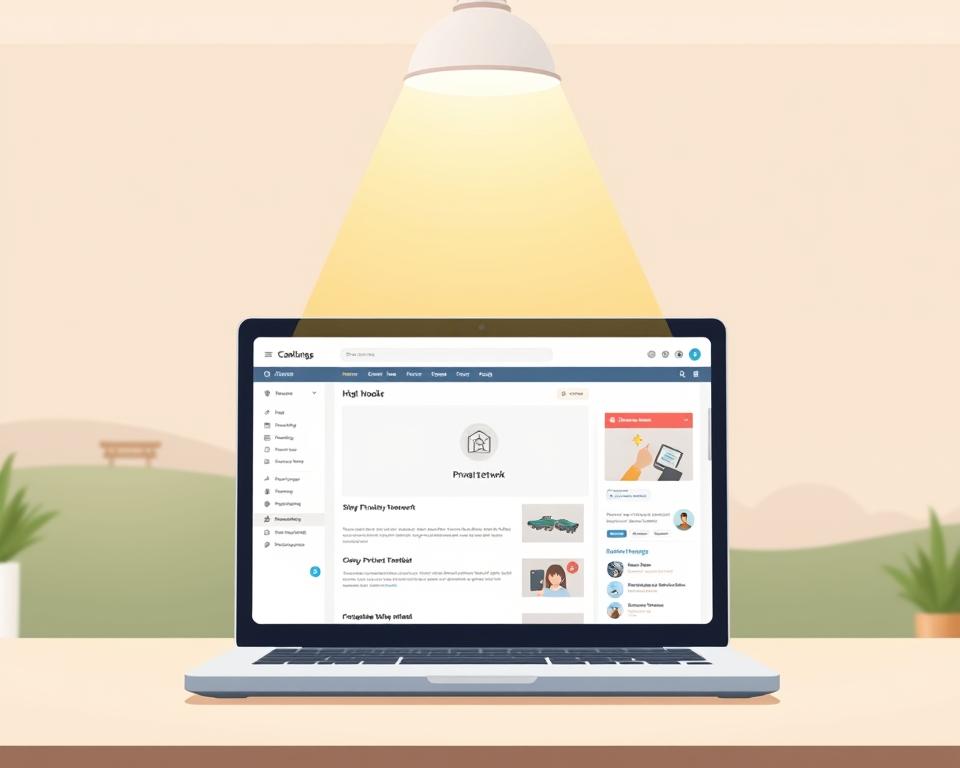Deep Dive into PBN Backlinks
Did you realize almost 60% of SEO experts have employed PBN links? A PBN’s main draw lies in how it can elevate a domain’s credibility. Consequently, search engines may reward you with improved rankings. But, what does PBN in SEO really entail? While PBNs promise swift SEO wins, they present major perils. These include severe penalties from Google. Let’s explore private blog network links basics and why so many in SEO find them irresistible.
What is a Private Blog Network (PBN)?
A private blog network, or PBN, is a group of websites built to create pbn backlinks for a main site. This method aims to increase search engine visibility by passing link equity from these sites to the primary one. By leveraging expired domains with lingering trust, PBNs present a convincing front to crawlers.
The purpose of a PBN is clear. Site owners use them to improve their online presence. They achieve this through:
- Securing high-value links that elevate SERP standings.
- Controlling the quality and relevance of these backlinks.
- Fostering a web of sites that exchange links in a natural-looking manner.

Behind the Scenes of PBN Links
The tactic hinges on crafting backlinks that look legitimately earned. When a pbn site links to another, it artificially increases that site’s perceived value and credibility.
SEO practitioners meticulously map keyword and domain usage throughout their network. Rapid uplift comes hand in hand with steep penalty prospects.
Success hinges on embedding links in contextually relevant, high-quality content.
PBN Benefits
The chief allure of PBNs lies in their backlink control. One of the primary benefits is the immediate control over backlinks.
PBN expired domains, often rich in authority, provide a unique opportunity to create strong backlinks.
Further, the flexibility found in PBNs allows for precise targeting of keyword-rich anchor texts.
PBN Pitfalls
Yet, these tactics are fraught with peril. Google’s crackdown makes PBN usage a high-stakes gamble.
PBN vs. Outreach
In the competitive world of SEO, professionals often face challenges with traditional link-building strategies. PBNs offer a unique advantage: a sense of control over backlink strategies.
PBN Management Tips
Avoiding footprints is critical in PBN upkeep. Begin with thorough due diligence when purchasing expired domains.
How to Detect PBN Backlinks
Regular backlink audits help unearth PBN footprints.
| Indicators of PBN Links | Description |
|---|---|
| Low-Quality Domains | Links from domains with poor authority or less than optimal rankings. |
| Irrelevant Content | Links embedded in content that does not match your site’s niche. |
| Suspicious Anchor Text | Repetitive or irrelevant anchor text patterns. |
| Thematic Similarity | Lack of a coherent theme among linking pages and domains. |
Using Google’s Disavow Tool
- Identify harmful PBN backlinks through thorough analysis.
- Create a disavow file correctly, listing specific URLs or domains to disavow.
- Upload the disavow file to Google Search Console.
Ethical Link Building Alternatives
High-quality content and influencer collaborations also drive organic links.
Clearing Up PBN Myths
Many assume PBNs are risk-free quick fixes.
PBN Outlook
| Factor | PBNs | Future SEO Practices |
|---|---|---|
| Content Quality | Low emphasis on genuine content | High emphasis on high-quality, valuable content |
| Risk Factor | High risk of penalties | Lower risk with authentic practices |
| User Engagement | Limited engagement | Enhanced user interaction and loyalty |
| Sustainability | Unsustainable in the long term | Focus on sustainable growth |
Final Thoughts
Private Blog Networks (PBNs) might seem like a quick way to boost search engine rankings.